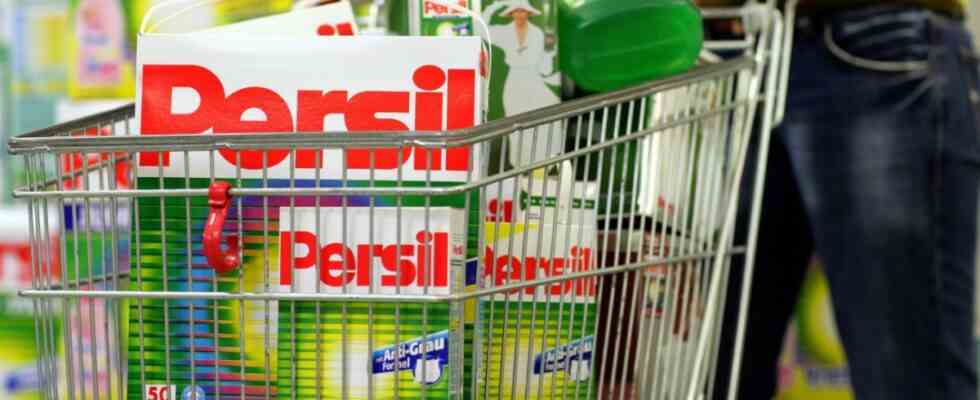It’s about 19 locations, including eleven factories, 2,500 employees and a billion euros in sales: the Russian business is important for the Düsseldorf-based consumer goods manufacturer Henkel. Nevertheless, the supplier of Pril and Persil, Pattex and Schwarzkopf cosmetics wants to sell the Russian subsidiary called “Lab Industries” by the end of March – after more than 30 years, the Dax company is withdrawing from the country. CFO Marco Swoboda said on Tuesday at the presentation of the annual balance sheet that Henkel was “on the right track” in the negotiations.
His boss, CEO Carsten Knobel, warned at the same time that the process was “very complex”. Knobel announced the sale in April, two months after the start of the war in Ukraine. He had reacted to public criticism and demands. At first, Henkel wanted to close the deal by the turn of the year, but that was not possible. New owners are said to be Russian investors. However, the government in Moscow is making such a withdrawal subject to strict conditions – and they are happy to change them from time to time: “The regulatory framework in Russia is unpredictable,” complained CFO Svoboda with a reserved air.
The Düsseldorf gas importer Uniper is struggling with similar problems. He wants to sell his Russian power plant subsidiary, but apparently President Vladimir Putin himself has to give permission. So far, that hasn’t happened – at the same time, the nationalized crisis group has de facto no longer had access to Russian society. Many companies have this kind of annoyance: Michael Harms, managing director of the Committee on Eastern European Economic Relations, says that Moscow is preventing Western companies from withdrawing and has “continued to tighten the rules”.
One consequence of this is that leaving Russia will be expensive: Uniper has already completely written off the division on its balance sheet, so it considers it worthless. The Henkel Group gives the value of its daughter in the annual report still with a total of 526 million euros, whereby CEO Knobel recently admitted in an interview that the company “certainly could not realize the true value of the sale”. When presenting the balance sheet, the manager criticized the fact that the other Western consumer goods manufacturers weren’t going through this trouble: If the withdrawal succeeds in the coming weeks, Henkel will be “one of the few or the only ones in this group to have taken this step”.
The cosmetics division is too small
The quarrels in Russia are not the only problem for Knobel, who has been running the company with its more than 50,000 employees for three years. Last year, “the dramatically increased costs for raw materials and logistics” caused problems for Henkel, he said. The costs increased by more than two billion euros after they had already grown by one billion euros in 2021. For comparison: According to Knobel, from 2010 to 2020 the costs only increased by an average of 100 million euros per year. Henkel therefore increased the prices, but the volumes sold fell. In the cosmetics sector, prices rose by around nine percent, and by 13 percent for detergents and cleaning agents.
In total sales increased by nine percent to a record value of 22.4 billion euros, although operating profit fell to 2.3 billion euros. In the current year, sales are expected to grow much more slowly, by no more than three percent. The reason given by management is that the global economy will continue to weaken, while raw material and energy costs will remain high.
The long-established company, the majority of which is still owned by the descendants of the founder Fritz Henkel, is doing best in the adhesives division. It supplies, for example, car, aircraft and packaging manufacturers. The longtime boss Jan-Dirk Auris left Henkel at the beginning of the year – because of a lost power struggle with group leader Knobel, as it is said. The weakest is the cosmetics division with brands like Schwarzkopf, since Henkel is quite small here compared to other cosmetics suppliers. That’s why Knobel has now merged the area with the division for detergents and cleaning agents.
Thomas Jökel, fund manager at Union Investment, complained after the balance sheet presentation that most of Henkel’s competitors “performed much better”. Investors were also disappointed: Henkel shares were among the biggest daily losers in the Dax stock market barometer.

